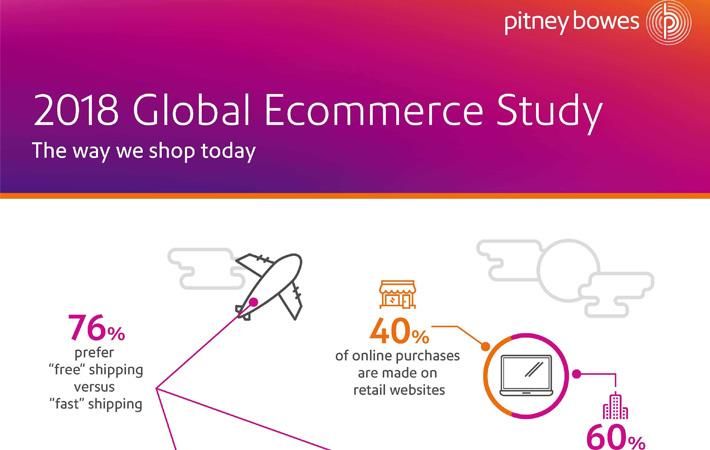Around 61 per cent of consumers globally felt let down by their online shopping experience during the last holiday season, according to the 2018 Pitney Bowes global e-commerce study. The figure was 47 per cent in 2017 and 41 per cent in 2016. Pitney Bowes is a global technology company providing commerce solutions that power billions of transactions.
In the United States, the rate of dissatisfied online shoppers is rising even faster with 56 per cent dissatisfied, up from just 36 per cent a year ago, a press release from the company said citing the study results.Around 61 per cent of consumers globally felt let down by their online shopping experience during the last holiday season, according to the 2018 Pitney Bowes global e-commerce study. The figure was 47 per cent in 2017 and 41 per cent in 2016. Pitney Bowes is a global technology company providing commerce solutions that power billions of transactions.#
Consumers pointed to post-purchase experiences, including items arriving late, expensive shipping, tracking inaccuracies, confusing returns policies, and lost or incorrect items as reasons for their dissatisfaction.
But despite frustrations, consumers are shopping online more frequently, the study found. Ninety four per cent of consumers globally are shopping online. Globally, 35 per cent of online shoppers make an online purchase at least every week. In the United States, 30 per cent make an online purchase at least every week, up from just 19 per cent a year ago.
The United Kingdom witnessed its rate of weekly online shoppers rise to 46 per cent, up from 38 per cent the preceding year.
The company feels the uptick in shopping frequency is also contributing to the rise in consumer dissatisfaction.
The study shows that consumers start to make judgements on the post-purchase experience even before placing their orders. In fact, 91 per cent of online US shoppers said they will leave a retail web site if critical services like ‘fast and free shipping’ are not available.
Consumers still rank ‘free shipping’ as more important than ‘fast shipping’. Globally, 76 pert cent of consumers prefer ‘free’ over ‘fast’. In the United States, however, the trend is starting to reverse, with 79 per cent preferring ‘free’ over ‘fast’, down from 86 per cent a year earlier. This reversal is mostly driven by millennials, with 35 per cent willing to pay for fast shipping, up from 20 per cent the year before.
According to the study, 90 per cent of online shoppers in the United States will take an action that can hurt a retailer’s brand in response to a bad post-purchase experience. Their reactions range from sharing their frustrations on social media to never purchasing from the offending site again.
The cross-border e-commerce market continues to mature. For the first time, fewer consumers said they were shopping cross-border, dropping from 70 per cent in 2017 to 64 per cent in 2018. The United States, China and Japan were the only countries where the number of cross-border shoppers increased in 2018.
Frustrations with shopping cross-border can be attributed primarily to shipping that is too slow, or too expensive. Other frustrations include the inconvenience of returning unwanted items and poor customer service.
The study is based on surveys of more than 13,000 consumers in 12 markets, combined with surveys of 650 retailers in the United States, the United Kingdom and Australia. (DS)
Fibre2Fashion News Desk – India
